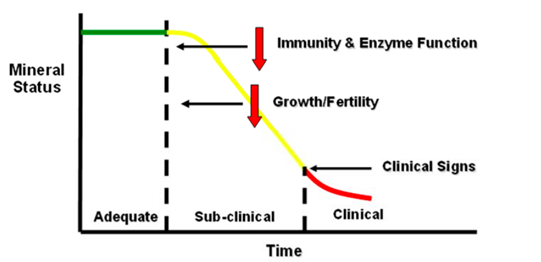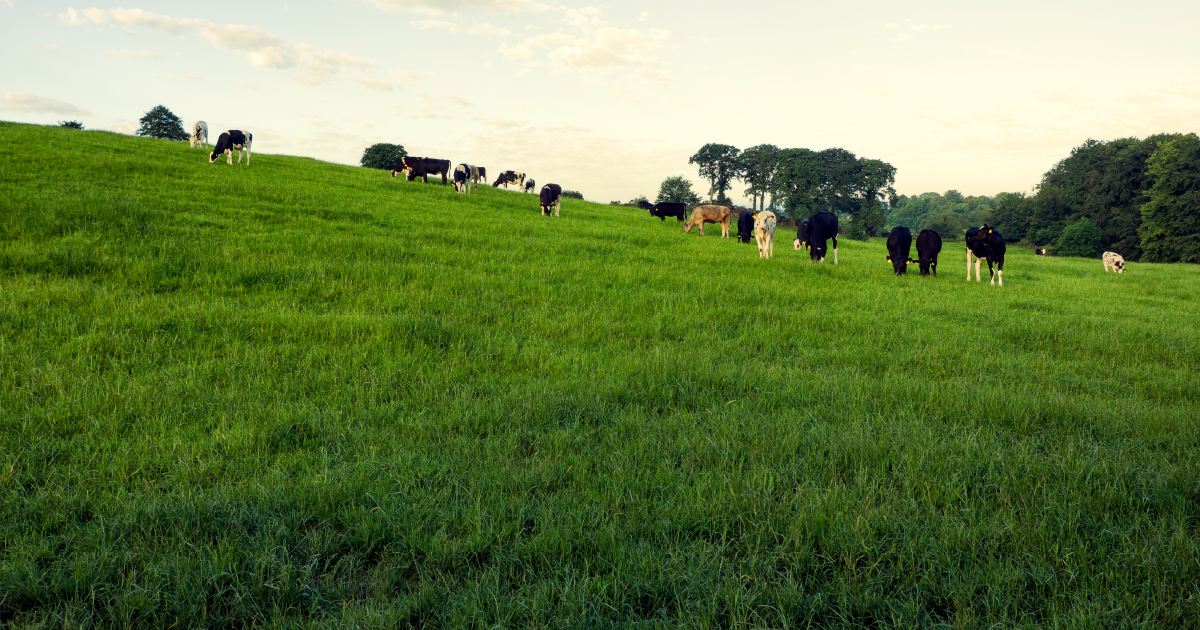Understanding minerals in calf milk
- By Wynnstay Calf & Youngstock
- 21 Apr 2023
- 0 Comments

Minerals are a crucial part of any animal's diet, whether they are macro minerals which are required in larger amounts, or trace minerals which are required in smaller amounts. Both these types of minerals are equally important and all add up to maintain health and performance. All minerals are available in natural feeds, however in order to achieve the optimum rate of minerals per day, a lot of this natural feed would need to be consumed.
Macro minerals
The main macro minerals include Magnesium, Potassium, Calcium, Sulphur, Sodium and Chlorine and Phosphorus which all play an extremely important role maintaining the health and performance of calves:
Magnesium
Approximately 70% of all magnesium rests in bone structures and soft tissues whereas the rest is used in energy production.
Sodium/Chlorine
These elements are crucial in regulating water levels at cellular and body level. Symptoms of deficiency include: restlessness and agitation
Potassium
This element is required in many biological processes within the body such as the transmission of nerve pulses, cellular metabolism and muscle and kidney function.
Symptoms of deficiency include muscular problems, as well as changes in feed intake and habits (pica).
Calcium
This is the most abundant mineral in a calf’s body and is required to form and maintain the strength of teeth and bones. It is also required in carrying out cellular functions within the body.
Symptoms of deficiency include: in severe cases, it can cause rickets which affects the skeleton leading to bone weakness and reduced growth rates
Phosphorus
This element works closely with Calcium in forming bone structure and is also used in many metabolic processes within the body
Symptoms of deficiency include: decreased growth, reduced appetite and poorer performance
Iron
This element is closely related to respiration as it is made up of blood molecules in the body that transports respiratory gases. Iron also make up many enzymes need in the body.
Symptoms of deficiency include anaemia resulting in a lethargic appearance with little appetite and reluctance to move more than necessary.
Manganese
This element is used in the formation processes of bone and blood cells as well as in regulating carbohydrate metabolism.
Symptoms of deficiency include generally weaker calves with poorer performance.
Copper
This element plays a big role in the formation of bones and nerve cells, as well as the functioning of blood cells and skin pigmentation cells.
Symptoms of deficiency include poor growth rates and discolouration of the hair.
Zinc
This element is used in many metabolic processes that break down lipids, carbohydrates and proteins.
Symptoms of deficiency include reduced growth and intake, loss of hair around the neck, head and legs, and excessive salivation.
Selenium
This element is a crucial component of the enzyme that protect tissues and cell membranes against oxidative stress. Selenium also regulates Vitamin E levels.
Symptoms of deficiency include stiff, lame and weaker calves that are reluctant to stand and move around.
Cobalt
This element also plays a role in the functioning of red blood cells and nerve cells.
Symptoms of deficiency include: poor appetite, weeping eyes, anaemia
Iodine
This element makes is crucial in the production of thyroid hormones such as thyroxine and triiodothyronine.
Symptoms of deficiency include weakness, bald patches, and an enlarged thyroid gland in the neck.
Trace minerals
Trace minerals consist of iron, manganese, copper, zinc, selenium, cobalt and iodine which are also crucial elements of a calf’s diet;
General effect of mineral deficiencies
An inadequate supply of minerals can generally cause poorer growth rates, increased risk of diseases and health challenges which overall go on to impact reproductive and conception challenges later in life. When mineral deficiencies become clinical cases, it can result in fatalities. The image below shows the stages of mineral deficiencies as it declines.


Wynstay Start’n’Wean
Wynnstay’s Start'nWean nuts and rearer feeds are fully mineralised for optimal trace mineral and vitamin supply to optimise health, growth and fertility. Each product is specially formulated in order to fulfil the calf’s mineral requirements. The Start n Wean concentrates contain the Wynnguard package which also contains probiotics and a prebiotic which supports gut health.










